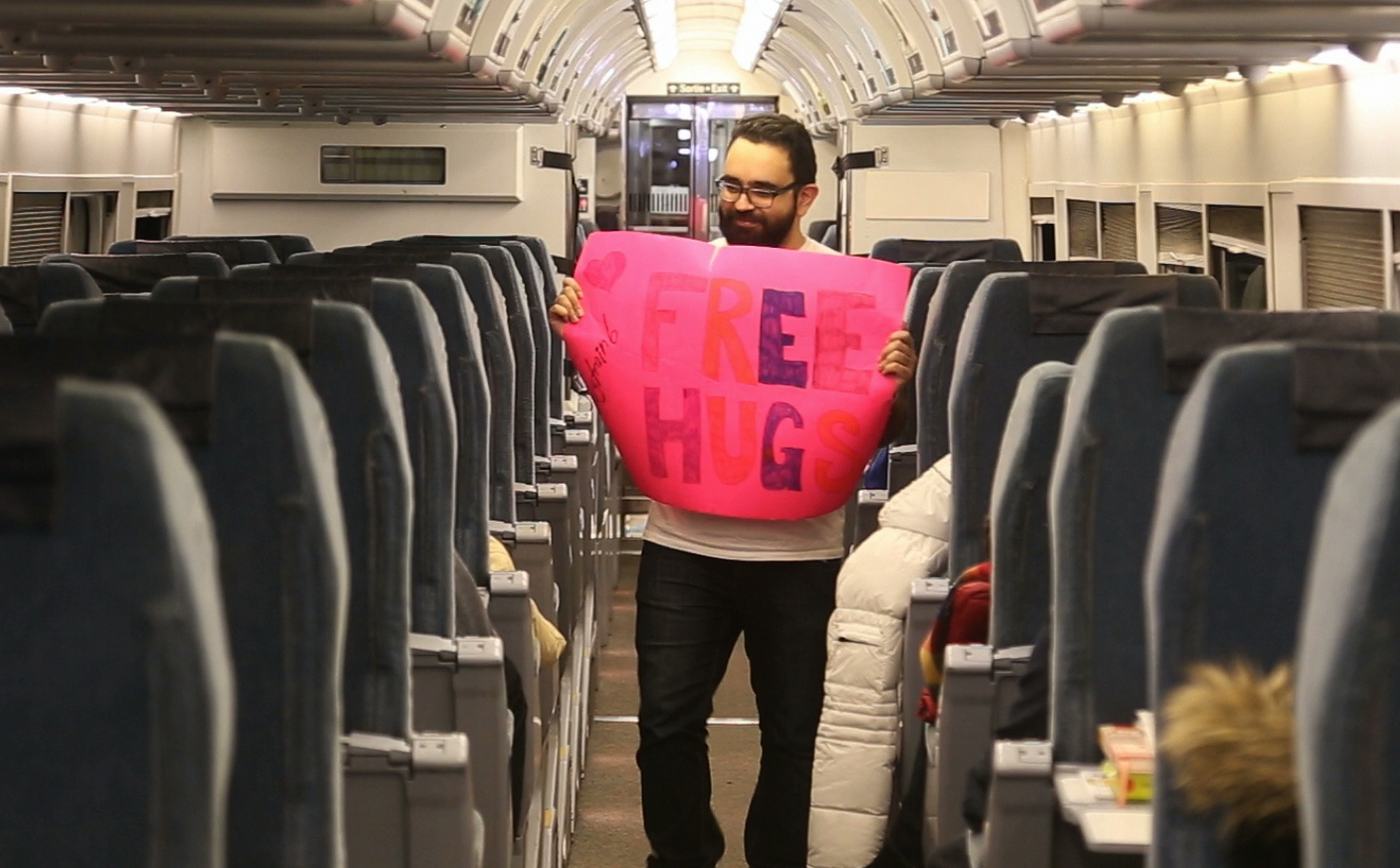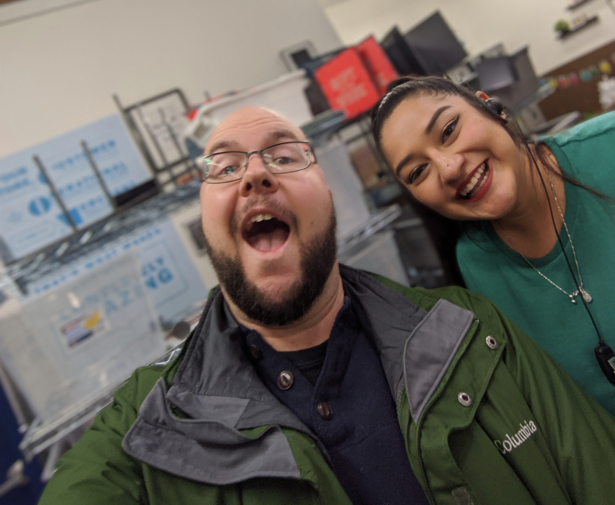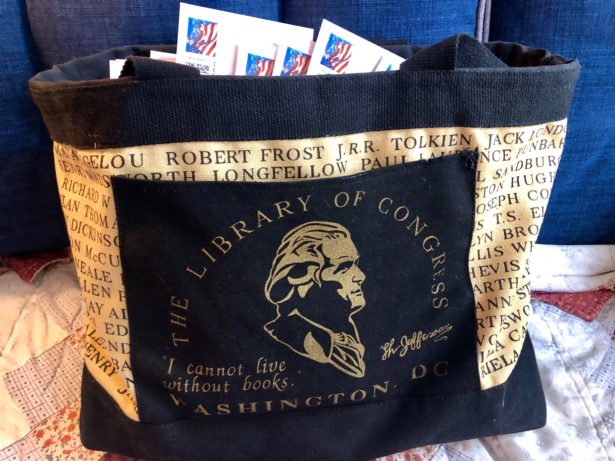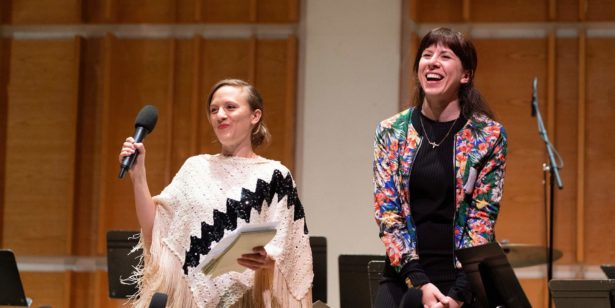
A Train Full Of Free Hugs, Every Year
For one Canadian man, opening the door to compassion is enough
“I didn’t set out to do hugtrain,” says Arie Moyal. “I’m a big train fan, and I had never done a big, long-distance train trip across North America. The American pass was a lot cheaper than the Canadian one, so I wanted to plan a route and go have fun.”
It was the holiday season of 2009 and Moyal had just left a job as one of the first-ever social media managers, and was moving to London to look for work there. A year after the 2008 global financial crash, “people were starting to feel the pain,” Moyal recalls. “I thought maybe people could use a hug. So I set out to do a one-off, a hug tour, or a hugtrain. It was just going to be a one-time thing.”
But the “hug tour” went so well that Moyal has done it nearly every year since, and it has become something of a mission. The task is simple: Moyal books a train trip (usually starting in December and ending in January), and wears a t-shirt and carries a sign offering free hugs, then waits for people to take him up on his offer. “When I get on the train I check in with the conductor. If I’m lucky, the conductor will read a script I have to announce to everyone on the train who I am. Then I walk up and down the aisles.”
“If you bring those walls down, hugs will absolutely give you all the benefits of vulnerability”
Moyal gets a variety of reactions to the suggestion that someone might want a hug from a complete stranger. Some people are delighted, others not so much. “For me, consent is a priority. If they want one they can take one,” Moyal says.
“Even if it’s a smile because someone doesn’t want to get close to you because of whatever’s going on with them, or they don’t want to stand up in front of a crowd, even the negative responses I get, what I like about it is that people are thinking. They’re being challenged in what they believe the world is about,” Moyal told Good Turns recently. “The reality is that kindness and compassion are super-important, and it’s becoming the theme of my life.”
Moyal’s life changed about three years into the hugtrain project, when a concussion and resulting brain injury left him unable to continue to pursue his career.
The injury left him “dealing with a whole new reality of having to give up on everything,” he says, and led him to the point of giving up on the project, which he had been financing with his earnings. But his friends convinced him he had to go on, and helped him crowdsource the next hugtrain. “A theme in my life has always been finding small changes that I can make to things I’m already doing to increase their value. This was another small change. I allowed it to be crowdfunded, and allowed people to give toward the trip. It changed everything, because instead of being the originator, I became a link in the chain from the people who wanted to help to the people who needed the help.”
It is those people who help keep Moyal on the train, in more than just a financial way. A few years into the project, he got an email from someone he’d hugged on the very first hugtrain. He wrote, “I’m sorry, I hope this is not out of the blue, but I need you to know that that hug changed my life,” Moyal says. “That was another reinforcement I needed to keep going.”
While the project started simply as a way to give out free hugs, it has since evolved to encompass three goals, Moyal says: “The first is to take on loneliness and social isolation, which is becoming an epidemic.”
“Another element is this whole relationship we have to vulnerability,” he continues. “Vulnerability is super-essential, you absolutely need it to build community, to build relationships. My theory of why a lot of relationships and marriages fail is that we’re not being vulnerable with ourselves. We’re still trying to be the perfect employee, or the perfect spouse. We’re not allowing those walls to come down. If you bring those walls down, hugs will absolutely give you all the benefits of vulnerability, which is why studies show they compensate for health problems. Hugs are an opportunity to experience vulnerability in a positive way.”
“The third element is the idea that small actions can cause big shifts,” Moyal says. “We live in a world where people might want to change the world, but get frustrated with what’s going on. They don’t think they can, they’re waiting for a government or a leader or a big charity to do something. They don’t believe they have the power to make a difference.”
“But when you suggest this stuff as solutions to the world’s problems, people look at you like you’re an idiot,” he says. “For me, it’s about finding an action that’s immediately available to you and doing it, whether it’s helping someone cross the street or holding open a door or just a smile or a hug.”
“I do hugs, and I know for some people it’s still a lot, especially when you’re on a train for 54 hours from Chicago to San Francisco. It takes a lot of courage for them to get up in the middle of an aisle and get a hug. I’m not doing much more than making things possible. I belive in being there and opening that door. So I don’t take it personally if people don’t want to walk through ther door. I give people the context to act up and step up. But you never really know what people are carrying around.”
Posted June 15, 2018





